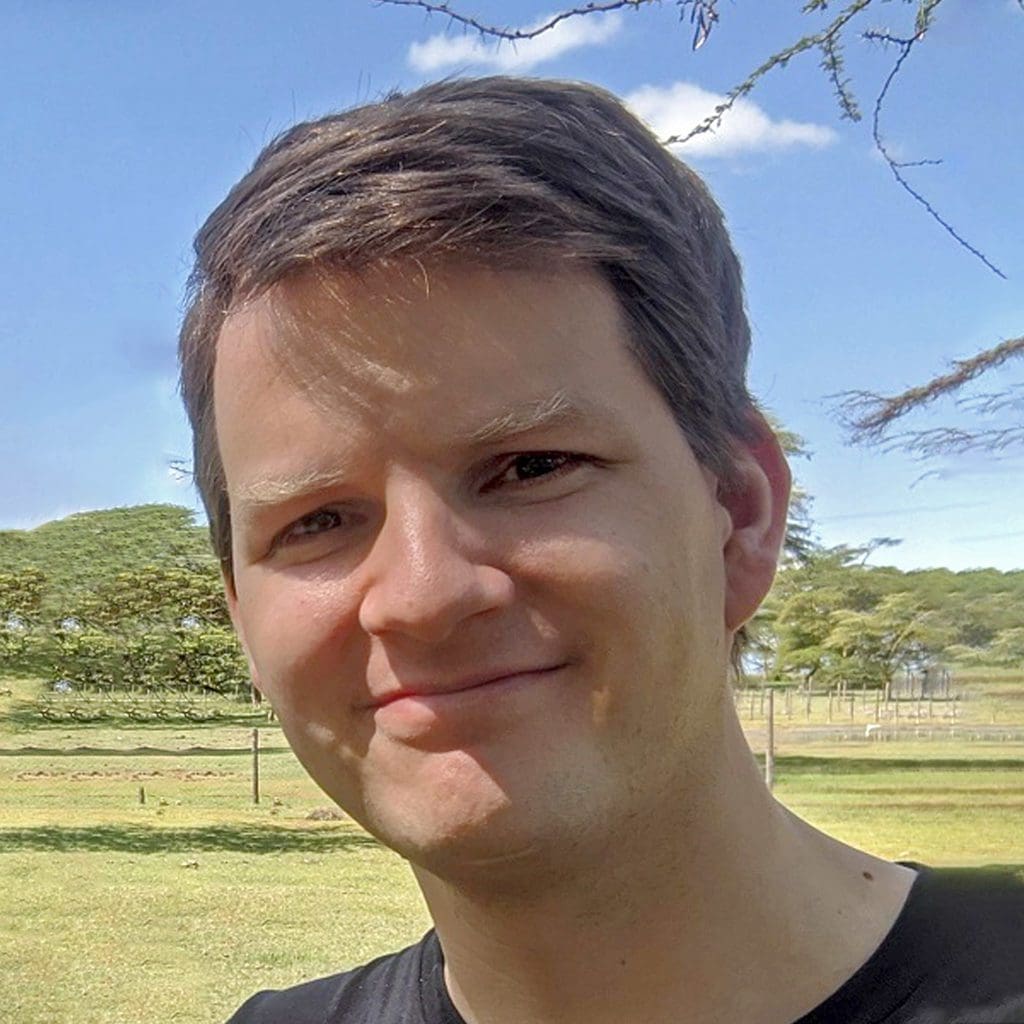The problem of police violence against black people in America is outrageous—and often feels hopeless. It’s been the better part of a decade since protests in Ferguson, Missouri, first brought the issue into America’s broader national discourse. In that time an intense amount of furor, activism, and voting has brought about little change in the overall number of people killed every year by police (and an uncertain decrease in the number of unarmed black people killed by police). Despite concerns that Donald Trump’s long history of both racist actions and words would increase these deaths after he was elected president, this fortunately doesn’t seem to be the case. However, “police violence isn’t getting worse” doesn’t give people much hope, especially when there is still a case every few months or so showing us a black man or woman killed without justification.
There are no known interventions that can definitively reduce racial bias in policing or police violence against black people. There is a much greater social stigma against blatant racially discriminatory speech and acts than there was a few decades ago, which makes finding sources of bias and remedies for it much more difficult. The theory of “implicit bias” promises to help us determine the socially formed unconscious biases that motivate our actions, but this promise is questionable because there isn’t strong empirical evidence correlating one’s degree of implicit bias to racist behaviour. Furthermore, no one has proved that training anyone about implicit bias, especially police officers, changes real-world outcomes for black people.
About three hundred black people are killed in the United States by police every year (and a few dozen of them are unarmed at the time). Why, then, do they hold so much power in our social imagination when so many other things kill black Americans at higher rates?
First, these killings are the tip of the iceberg: they are the most potent and visible public symbol for a broader set of abuses of power and experiences of discrimination that far more than three hundred black people go through every year. Many, many African Americans have a personal experience of discrimination at the hands of police or know someone with such an experience; while most of these encounters do not escalate into violence, any of them could. Other day-to-day activities, like simply running through a neighbourhood or playing in a park, gain a similar valence of fear. The fact that wealth may not compensate against this sort of discrimination, as it could in other domains, may be part of why it is such an animating force in American political discourse.
Second, and more crucially, unjustified violence by the state cuts at the root of our social and political stability. Our political compact gives police officers the power to restrain or even kill when necessary; when this power is misused it shakes the foundation of everything else our society is built on. Maslow may have placed safety above our physiological needs, but it also works in the reverse. The fact that so much time, energy, and money is spent both in domestic and global contexts on meeting needs other than safety and security (e.g., providing health care or paying primary-school teachers) is indicative of how deeply those of us who have grown up in a safe and secure environment underestimate its importance.
Violence, Security, and Poverty
Perhaps most people reading this essay do not think much about how physical security affects their psychological and social health because most white people in the West have the privilege of taking our safety and security for granted. In return for paying our taxes, we are able to call the police any time the security of our persons or property feels threatened, and we have a reasonable chance of having their protective and investigatory powers applied to whatever problem we’re facing. It is far from perfect, but it works for many people.
The threat of being caught is a far more effective deterrent to crime than the severity of punishment one receives after being caught. This deterrence provides a great deal of psychological comfort to the people who can count on it. If one has grown up in such an environment it is easy to forget that it is there until a crisis comes or a crime notorious enough is committed nearby. Thanks to other forms of state force and protection, we can experience the same sort of security about our financial assets and our housing; we never have to think about being unjustly evicted by a land-grabber because there are protections in place against that sort of thing. Because of the security we experience, we can build, risk, and care for one another in ways that knit together a healthy, functioning society.
The situation is reversed for people who don’t have these protections. If one lives in a country where the police are ineffective and unreliable, then your likelihood of getting stolen from or physically injured is higher. If the police are corrupt or even involved in crime themselves, then there is no reliable security. Countries where this is the case are also generally places where property rights are also weakly protected, which in turn discourages people from saving up wealth or investing in more productive enterprises. If everything could be stolen at any time and the thief (whether a common pickpocket or a wealthy land-grabber) has little chance of being caught or punished, it feels foolish to save and invest too much.
Gary Haugen and Victor Boutros argue in their book The Locust Effect that chronic insecurity’s long-term effects entrench poverty and undermine development. It is difficult to argue with their thesis, and my personal experience of living in places where the police are known for shooting suspects on sight is that people living in those places are no less afraid of crime happening to them. A lack of investigation, accountability, or appropriate punishment allows both pickpockets and politicians to steal mobile phones or millions of aid dollars, whichever they are accustomed to. When we speak of the need for “justice,” procedural justice ought to be first and foremost on our minds.
Therefore, the most effective justice system is one that catches wrongdoers swiftly and punishes them appropriately; a police force (as well as other bodies that investigate white-collar crime) that cannot investigate properly, routinely fingers the wrong suspects, or uses disproportionate force with suspects will not deter crime and will often make crime worse. Cycles of suspicion, over-policing, criminalization, and abuses only perpetuate violence. It should come as no surprise, then, that some of America’s most destitute urban neighbourhoods are those where procedural justice is in short supply.
Baltimore is a prime example: an “elite” task force of police officers was robbing drug dealers and selling drugs while murder rates soared. The city’s own mayor was corruptly using the sales of her children’s books as political leverage, and the rate at which the city has solved homicide cases continues to decline. As one report from my old neighbourhood of Sandtown put it, “We are over-policed and under-served.” Many on the right want to defend aggressive practices like stop-and-frisk, but when one looks at the evidence, stopping and searching black people more frequently (even in more “violent” areas) fails to either protect those areas or turn up more contraband in searches. Furthermore, these practices only encourage lawlessness among officers in the law, turning them into just another armed gang. When there is no accountability for state wrongdoing and the most frequent outcome of a stop or search is “nothing,” there will be no trust in civic institutions and we cannot expect poverty or crime to improve.
There are many more cries lately for “police abolition,” which rarely means abolishing the police entirely so much as it intends to radically alter what the police do. The latter is feasible, even necessary; the former is impossible. Even if we were to “abolish capitalism” and establish community-based alternatives, we would still require people who are capable of investigating crime as well as means of discouraging future crime. The only alternative is some sort of privatized policing (which is what any “community-based alternative” that excludes the state entails), which opens up even more opportunities for injustice since, after all, policing is a core responsibility of, and intended to serve, the public writ large. Abolition? No. Radical reform? Yes.
It is often suggested that alleviating poverty would ameliorate injustice and decrease violence, but there’s little evidence to suggest this is the case. Having sufficient food, shelter, or health care does not necessarily prevent anyone from committing crimes. Crime did not rise dramatically in America during the Great Recession, and murder has only increased in Latin American countries during recent periods of immense poverty reduction. The opposite seems far more likely: poverty and the attendant lack of power make people more vulnerable to injustice, and poverty is exacerbated by ineffective police forces that cannot effectively catch criminals because they are busy eroding trust by shaking down innocent teenagers.
While there are no known race-specific policies that would reduce the disproportionate police violence against blacks (and bias in the criminal justice system in particular), there are a lot of things that can be done in general to reduce the use of unnecessary force. Campaign Zero has collected some of the strongest evidence-based recommendations, including independent prosecution of police-violence cases, stricter use-of-force policies, demilitarization, and altering police-union contracts. Ending qualified immunity is also an important area for potential change, as is adhering to rules about no-knock warrants. Police officers are also currently doing a great deal of work that they are neither trained nor appropriately qualified for; these tasks (such as responding to individuals in a mental-health crisis) could be done by other professionals.
What about incidents of violence that black people suffer in areas of concentrated poverty that aren’t committed by the police? While we can hope that easing up on policing that makes things worse will free up resources to investigate violence, it’s also important to fund interventions that do work. Focused deterrence recognizes that a very small number of people are the instigators and perpetuators of violence in a community, and they are just as likely to shoot as to be shot. Rather than stopping as many young men as possible in the hopes of finding a gun, focused deterrence channels resources toward specifically intervening in the lives of those known to be victims or perpetrators and giving them opportunities to reform their ways—or face severe consequences. Violence interruption is another strategy accumulating evidence as an effective solution; these programs employ community-based “interrupters” who are familiar with the local neighbourhood and are able to mediate disputes that would otherwise erupt into violence. Funding and maintaining these programs sustainably is more difficult than strategies like stop-and-frisk that promise “law and order,” but in the end they are better for the communities that suffer the most injustice.
What Does Race Have to Do with It?
Racially unbiased solutions for a problem where racial bias shows up again and again: Is that all it takes? All of the above-mentioned reforms would go a long way in helping reduce violence by police against men and women of all races. Demonstrating conscious racial animus is nearly impossible in most high-profile cases (although it is not hard to find outright discriminatory behaviour in police departments). One cannot say that Breonna Taylor was murdered because she was black; at most, one can say that Breonna Taylor was more likely to be murdered by police because she was black and her murderers are more likely to suffer no consequences for their crime because she was black. This leads some people to dismiss the idea that racial discrimination is at all meaningful in contemporary politics.
Such dismissals, however thoughtful or balanced they attempt to be, are callous and miss the forest for the trees. The fact that Michael Brown did not die with his hands up does not negate the fact that a pervasive pattern of overaggressive policing permeated Ferguson. The fact that three of the officers indicted for the murder of Freddie Gray were black does not obviate the long-standing injustices that black people in Baltimore have faced since before Countee Cullen wrote his famous poem about the city. Police violence is only one manifestation of a much larger system of bias and discrimination that has been harming black people for a very long time. Indeed, the history of policing itself is inseparable from America’s history of racial control and violence against black people.
White supremacy, from its early Age of Exploration origins traced by Willie James Jennings to its modern-day forms, can best be thought of as one of the powers and principalities described by Paul in his various letters. When I use the term, I’m not simply referring to its most heinous forms—neo-Nazi skinheads for instance—but to a structural power that connects different racial injustices across history. Just as the Sexual Revolution has driven several generations to sexual madness through legalized abortion and cultural valorization of promiscuity, white supremacy shapes the way that people think and act while also embedding itself in the habits, practices, and policies that make racism insidious and harmful. Americans struck huge blows against white supremacy by banning slavery and then passing civil rights legislation a century later, but to pretend that the power of racism and white supremacy were somehow entirely nullified fifty-five years ago is willful blindness. We remain with both the legacy effects of discrimination codified into law (e.g., home values of redlined properties and the resultant disparities in black wealth) as well as the persistence of discrimination against blacks in various domains of public life. To accept that white supremacy is a power that exerts and receives power through people’s actions is not a harebrained acceptance of wacky sociological theories; it is the natural result of listening to black people and applying a biblical worldview to history and current events.
White Christians can easily fall into asinine tropes about how the reconciling power of love will “overcome racial divisions.” One can over-spiritualize the subject, calling for vague measures while neglecting crucial policy concerns. However, we must take care not to under-spiritualize matters either. If, as William Stringfellow has said, racism is a demonic power, then we should not underestimate how important prayer and the reconciling work of the church will be to overcoming it. The church of Jesus Christ, which throughout its history has often worked to perpetuate racial harm, has the opportunity to redress those harms in its battle with white supremacy.
I mention prayer specifically not only because dealing with racism is spiritual warfare but also because individuals and church communities in North America ought to pray about how they should be involved in racial justice. If your church is mostly white and you live in a mostly white area, there is probably a historical reason why things are that way. It’s probably not a very pleasant reason, but it’s worth learning about. Pray about what your response to it should be, and ask the Holy Spirit to reveal where racism is manifesting in or around you. Read about race and black theology.
Racial integration was one of the key battlegrounds of the civil rights movement and remains a flashpoint in the battle against white supremacy today. Support affordable housing being built in your community and advocate against the regulations and zoning processes that make building that housing expensive and difficult. As part of your relationship with a community with concentrated poverty, pray and ask God if you might be called to move into such a community and be a neighbour. It will not be easy, but there are few ways to more powerfully work for the good of those who need it.
There are no easy answers to deal with the problem of police violence, although there are a lot of reforms that could focus policing to deal more exclusively with solving crimes while reducing the number of interactions that could turn fatal. While police abuses occupy a great deal of our discourse, they’re only a small part of the racial injustice that has haunted the church for centuries. The church, if it is willing to finally hear our brothers and sisters who are testifying to what is happening, will find strategies for battling the demonic power of white supremacy. If we are willing to listen and pray.



